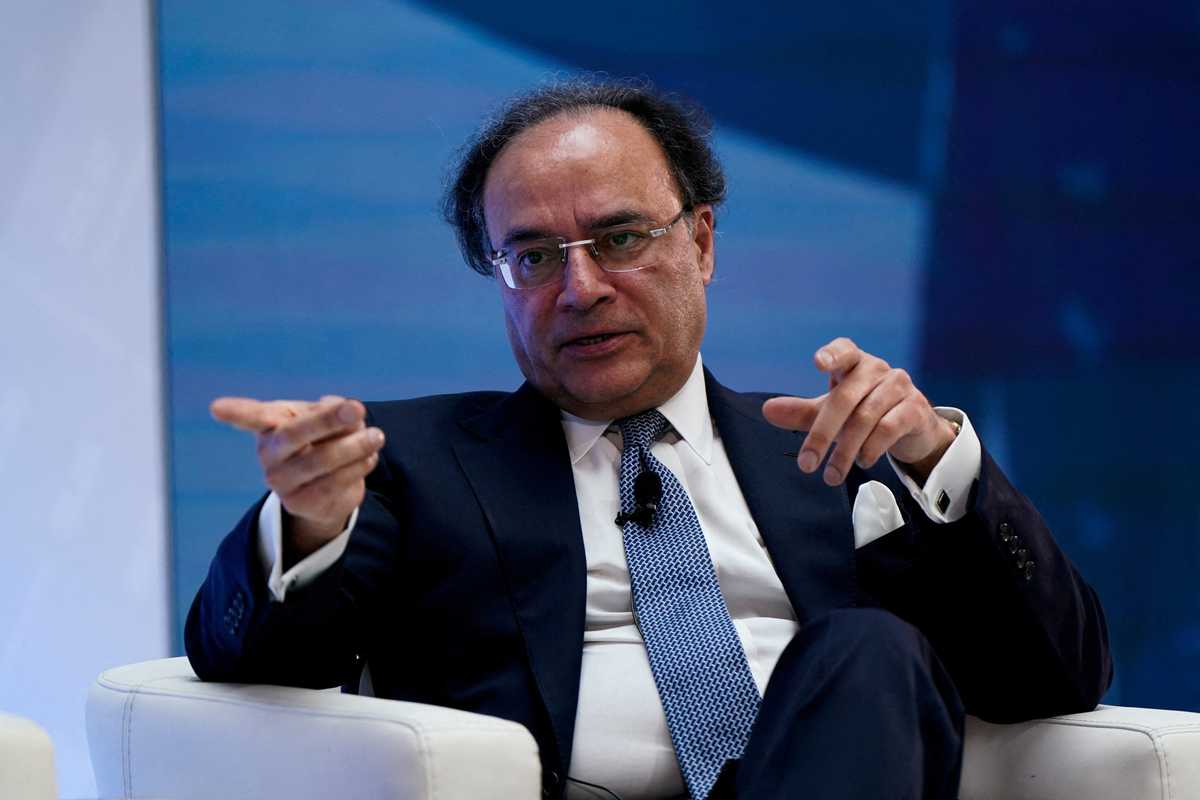Pakistan's finance minister heads to US for key trade talks
Islamabad seeks to finalize trade pact with Washington, aiming to boost exports and expand cooperation beyond textiles
Business Desk
The Business Desk tracks economic trends, market movements, and business developments, offering analysis of both local and global financial news.

Reuters/File
Pakistan’s Finance Minister, Senator Muhammad Aurangzeb, has departed for the United States in a significant step toward finalizing discussions under the ongoing Pakistan-U.S. Trade Dialogue, the Ministry of Finance announced Monday.
The visit is aimed at concluding negotiations that could pave the way for a structured bilateral trade agreement between the two nations. Officials say the dialogue focuses on expanding economic cooperation in both traditional and emerging sectors, including information technology, agriculture, and mineral development.
“Strong trade and economic ties are a critical pillar of the Pakistan-U.S. bilateral relationship,” an official statement said. “A formal agreement could unlock new opportunities for investment, innovation, and market access on both sides.”
The United States remains Pakistan’s largest single-country trading partner. Two-way trade surpassed $9.2 billion in fiscal year 2024, according to data from the Pakistan Bureau of Statistics.
Pakistan’s exports to the U.S., including textiles, garments, leather goods, and rice, totaled over $6 billion. Imports from the U.S. stood at around $3.2 billion and included machinery, pharmaceuticals, and high-tech equipment.
Despite global headwinds, trade volumes have continued to rise. However, analysts cite the lack of a formal agreement and tariff barriers as key challenges holding back greater potential.
Pakistan currently holds Most Favored Nation (MFN) status with the U.S. under World Trade Organization rules. But it is not included in any U.S. preferential trade programs like the Generalized System of Preferences (GSP), which expired in 2020.
Meanwhile, U.S. tariffs on Pakistani exports, particularly in textiles and apparel, can reach up to 20%, compared with near-zero tariffs for some countries with free trade agreements.
Pakistan has long called for preferential access or a GSP+ revival to support its export-led growth strategy.
On the other hand, U.S. companies say Pakistani tariffs on American imports, such as vehicles, agricultural tools, and electronics, ranging from 15% to 30%, make the market less competitive.
An economist noted that a formal trade pact would benefit Pakistan’s core industries.
“A structured trade agreement with the U.S. would be a game-changer for Pakistan’s exports, especially in textiles, IT services, and agro-processing,” the economist said. “However, it requires strong compliance with labor, environmental, and governance standards.”
Senator Aurangzeb’s visit comes amid shifting global trade dynamics influenced by geopolitical tensions and supply chain realignments.
The Ministry of Finance expressed hope that the talks would yield broader cooperation in trade, investment, and technology.
“Pakistan is eager to deepen ties with the U.S. beyond textiles, into minerals, digital economy, and agri-tech,” the statement added.







Comments
See what people are discussing